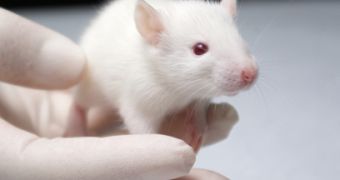Gut bacteria taken from skinny people and transplanted into the bodies of those who are a tad too plump might help the latter lose weight, the findings of a series of experiments carried out on mice suggest.
Researchers explain that, as part of these experiments, they collected gut bacteria from four sets of human twins and transplanted them into mice.
The pairs of twins were made up of one skinny and one overweight individual, Nature reports. Thus, some of the mice got bacteria from obese people, and others got bacteria from slim ones.
The researchers found that, despite being fed the same diet, some of the mice started gaining weight. Others somehow managed to remain slim.
It turns out that the mice that kept their figure were the ones that received gut bacteria from the lean twin. Those that became overweight were the ones that were given gut bacteria taken from the obese twin.
The researchers then made mice belonging to one group exchange gut microbes with rodents belonging to the other group.
Long story short, mice that carried gut bacteria from an obese twin in their bodies, but that hadn't yet had the time to put on weight, ate the feces of the slim ones, and vice versa.
“The populations of bacteria in the obese-type mice changed to match those of their lean cage-mates, and their bodies remained lean,” biologist Jeffrey Gordon explains.
However, gut bacteria from the obese-type mice failed to colonize the bodies of the slim-type ones, hence the fact that these rodents remained slim as well.
Interestingly enough, once obese-type mice started being fed a high-fat, low-vegetable diet, bacteria from slim-type rodents were no longer able to colonize their guts.
“There’s an intricate relationship between our diet and how our gut bugs work. You have to have the right ingredients,” researcher Jeffrey Gordon says.
The researchers are confident that the outcome of these experiments will one day help scientists roll out better treatment options for people suffering from obesity.

 14 DAY TRIAL //
14 DAY TRIAL //